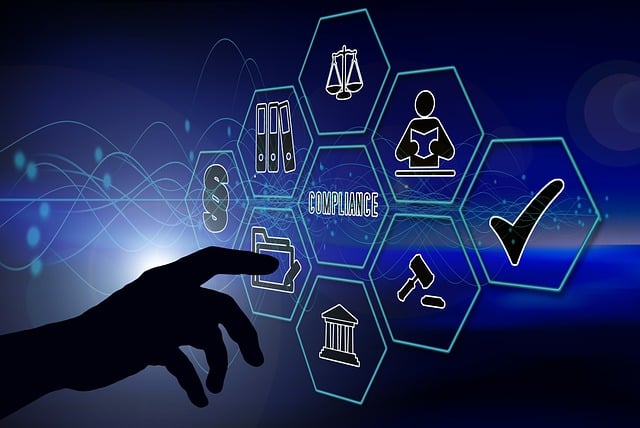
AI law what comes to mind when you hear that? AI law applies to how the law is used in AI to prevent it from exposing confidential information that could obstruct the law.
Artificial Intelligence (AI) has seen the world through the advancement of technology. It has provided the needed aid to help the targeted entities accomplish their technological goals. When talking about growth, it’s no doubt that businesses would come to mind. AI has since worked towards developing new technology strategies for all business practices, including compliance.
This article considers how it has applied its law in compliance practices. Its benefits so far and how these changes are managed by compliance, among other issues. Reviewing these factors should help each business owner learn how to embrace AI as a trusted companion for business success.
Defining AI Law and Its Relationship with Compliance
AI is a shortened form of artificial intelligence. It is a system designed to copy human intelligence by performing tasks independently and giving feedback based on the information. It can collect data, analyze it, and form it into a particular format to serve a specific function. On a general scale, artificial intelligence law (AI Law) is the regulation of how AI is used, developed, and deployed.
Compliance, on the other hand, means abiding by the set rules. Compliance involves a company’s submission to specific standards, laws, regulations, and ethics on a business scale. It is essential for business growth as it helps in the proper organizations needed to extract maximum value.

It also avoids incurring unnecessary charges on the business. Nonetheless, much of this success depends on how the organization has planned its affairs regarding the technology architecture to help bounce back these obstacles.
AI compliance has helped businesses grow to a competitive advantage by streamlining the operation of these businesses to suit specific needs. Companies depend on AI to grow by adhering to laws and ethical standards to help them build a sound AI foundation. Roughly 80% of companies today aim to increase their investments through AI, while 77% have even prioritized AI compliance to lead them to business success.
Read: Technology: Understanding AI in Banking
How AI Can Help With Compliance
With a wide range of uses present in AI, there must be a set of laws to help it progress as it helps its subjects progress. Because every business must conform to regulatory compliance rules, it’s hard and almost impossible to wade through the numerous documents presented to meet compliance expectations. The following are ways through which AI helps compliance laws for business growth:
Helps in Lowering Costs
Artificial intelligence can automate workflow, detecting when the flow is rapid or constant. Many businesses are finding it hard to keep up with the tracking of costs and regulation charges, which at times, could be faulty. In this instance, the company is aligned with AI compliance to avoid costly fines incurred by those who are non-compliant.
Aims At Reducing False Positives
AI has the ultimate power to address the problem of false positives, which wastes time and money daily by leveraging AI machine learning to acquire and analyze data elements presented by every business embracing it. A
AI technological functions can streamline compliance alert systems to a greater extent since they are built to learn from compliance data. When considering today’s data-driven compliance society, AI can drastically improve the efficiency of compliance operations and, at the same time lowering expenses.
Addresses Human Error
When plenty of data is involved in this interpretation, businesses are bound to experience human error. Albeit this might not be possible since parties are involved in thwarting this occurrence, a more flexible power has to be used to prevent it from reoccurring.
Read: How to Identify Bias in Business Compliance and Address It
The daily volume of data each business encounters makes it more likely to experience human error. AI and machine learning solutions have proved to be substantial solutions in minimizing the effects of human error.
Nevertheless, human error can also cost the list of large sums of money to firms, and preventing it is imperative. This may happen when essential data is breached, causing over-expenditure incurred on fines.
Therefore, firms must track, manage, and analyze data from their customers and their operations, whether of high volumes or low. AI compliance serves a huge responsibility to aid in this process, thereby preventing problems associated with human error.
The Application of AI Law in Legal Compliance Practices
It’s no doubt that many companies today are embracing AI compliance for a competitive advantage. This process delivers high-quality and trustworthy AI systems ready to offer their first movers a significant advantage of attracting new customers, retaining old ones, and enhancing confidence in the investors.
Multiple findings have discovered that organizations today embrace AI compliance by prioritizing it to investment. The following are strategies that AI can implement in companies to ensure compliance as a driving force:
Read Everything You Need To Know about Social Media Compliance
Ensure Compliance is Regulated
When collating data for compliant programs, many unforeseen gaps are experienced. These occurrences become apparent when operating at scale because many steps are followed during this process. AI compliance can help reduce these loads by comparing internal and external sources and matching them appropriately where necessary. It also helps reduce the company’s risk of non-compliance by transforming data into intelligence automation, increasing accuracy.
Streamline Processes
Automated systems can sometimes hinder compliance by being inaccurate. Using AI compliance will help by ensuring fewer quality alerts are produced. It can also be used to monitor fraud measures widely.

For your virtual business which might be hard to track it will create a consistent way of providing accurate compliance data.
Keep Up With Constant Change
When businesses keep fluctuating continuously, there has to be a field that acts as a watchdog to steer up business growth. AI compliance takes this exact role by optimizing the processing of these regulations and the required actions to help companies with an updated record of events and activities.
Final Sentiments
If you are anticipating starting a business venture, you probably have heard about AI and how it has helped many businesses with the right tools needed to advance themselves. Today, business owners have embraced compliance with AI and seen their businesses through so much success and avoidance of business potholes. The AI law regulates business bait traps, such as avoiding fines or facing potential lawsuits due to negligence. It also helps businesses maintain a clear standard on the goals they wish to achieve. While AI compliance helps with business growth, it has to be taken seriously to make it worthwhile.
Related Articles you Might be Interested in:
How to Buy a Law-Compliant Business Online




